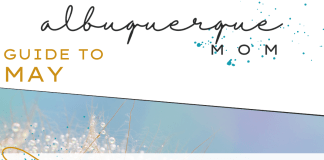Seeing your loved one struggle with addiction, whether it be drugs or alcohol, can be very challenging. Loving them but also watching their addiction take so much power over their minds and body can bring pain and fear.
I have walked the difficult path of watching someone I love struggle with addiction. It has been very frustrating and stressful, and I’d like to share some things that have helped me help my loved one. This is a tough topic to speak about, but I also want to encourage others to be supportive and find a solution.
You may feel powerless as you try to find help and get advice. Your loved one may experience changes in their mood and behavior, but at the end of the day, you still love them and want their addiction to just go away. You might sometimes feel responsible for keeping them safe and healthy which can cause you to feel stressed from worrying so much and seeing no positive progress.
» » » » » » » » » » » » RELATED READ: Alcohol Almost Ruined My Life « « « « « « « « « « « « «
What happens then? You may ask yourself, what do I do? How do I help my loved one? What should I say? How can I approach this without angering my loved one and causing self-doubt? There are no set rules or guidelines on how to help your loved one, but from my own experience, I have a set of hints that you may find helpful.
Educate yourself about addiction and find resources.
First things first, realize that addiction is not a choice. It is a psychological disease that alters a person’s brain chemistry and controls their mind and physical choices. Once addiction takes over a person’s brain, they have cannot think critically about what their actions and words are. This may include not understanding the consequences they will experience such as withdrawal.
 You can start educating yourself by researching articles, talking to a health expert, or joining a support group. From my research, I found the following resources in the Albuquerque area.
You can start educating yourself by researching articles, talking to a health expert, or joining a support group. From my research, I found the following resources in the Albuquerque area.
Shadow Mountain Recovery Centers
UNM Behavioral Health Services
Address the issue, not the person.
There were times when I wanted do scream and cry at the same time because of what was happening, watching my loved one struggle and shrug away their addiction like it’s not that big a deal. I felt resentment and shame. But showing tough love was not always the best way to share my frustration. I learned that the best way to approach my loved one was to be supportive and open toward their addiction.
Let them know that you want to help them because it hurts to watch them go through these behaviors and actions. Let them know how it makes you feel. When you communicate from a place of empathy and love, this empowers your loved one to share their needs and gain support from you.
I would do anything to show my deep and caring heart for my loved one, but I knew I had to take it slowly. Creating an atmosphere of healthy and open conversation is a great boundary to set. Have an honest and understanding conversation. This prevents you or your loved one from taking the blame or arguing.
Find treatment options.
I made sure my loved one was on the same page as me in finding treatment for their addiction. I showed my support by searching for different options for treatment. This included finding support groups to talk to, talking to a health expert, making an appointment to see a family doctor, or signing up for rehabilitation. There are many options to choose from and it may take time to find the best one for your loved one.
Understand that your loved one can not be forced into going to a rehab center. They must ultimately be the ones who choose to quit their drug or alcohol abuse, undergo treatment, and pursue sobriety. I found a few local facilities in the Albuquerque area for additional information on registering for rehabilitation programs.
Don’t give up!
Remember that you are not to blame for all the frustration, hurt, and pain that you go through with your loved one. Nor was it my loved one’s “fault” either. Addiction is a disease that is hard to overcome, but it is possible. There may be times of relapse which is expected, but that should not detour your decision to help. Don’t put your loved one down because of their actions and behaviors. Don’t ignore the issue by silencing yourself. They have no control over their use of substance abuse or the consequences that follow.
» » » » RELATED READ: Two Local Moms Start Podcast Normalizing Alcohol-Free Living « « «
At the same time, don’t enable your loved one. Don’t make excuses for them. Don’t let them have “just one.” Don’t create a space of last chances. All of this was so hard for me because I felt some resentment and shame. But I knew in my heart and soul that I had to keep trying. I tried my best to stay positive and take it day by day. I knew that without me, my loved one would have no support from anyone else. I have been the key to their sobriety journey.
Keep in mind that your loved one is here today because you continue to love them. You are fighting for them even if they don’t know it. You are helping them by showing love and support no matter what.
I hope my own experience can help you support your loved one and guide them through their journey of overcoming their addiction. Someday I hope they will understand and realize that you never gave up on them.
Originally published April 2023.
The opinions expressed in this post are those of the author. They do not necessarily reflect the official policy or position of ABQ Mom, its executive team, other contributors to the site, its sponsors or partners, or any organizations the aforementioned might be affiliated with.











